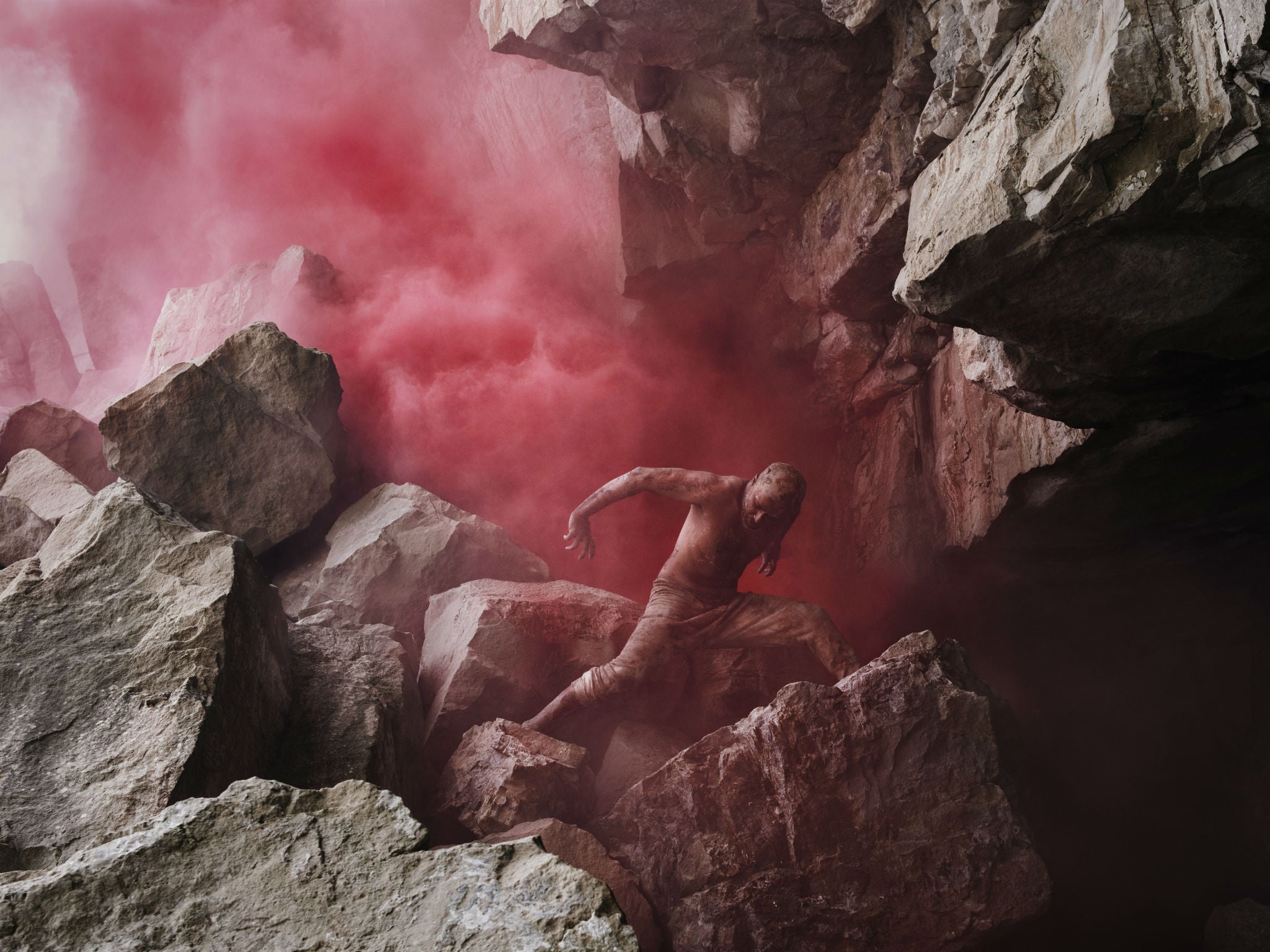XENOS, Sadler's Wells, London, review: Akram Khan's last full-length solo show emphasises his stamina
The last full-length show he'll dance evokes the shell-shock of an Indian soldier in the trenches of the First World War

Your support helps us to tell the story
From reproductive rights to climate change to Big Tech, The Independent is on the ground when the story is developing. Whether it's investigating the financials of Elon Musk's pro-Trump PAC or producing our latest documentary, 'The A Word', which shines a light on the American women fighting for reproductive rights, we know how important it is to parse out the facts from the messaging.
At such a critical moment in US history, we need reporters on the ground. Your donation allows us to keep sending journalists to speak to both sides of the story.
The Independent is trusted by Americans across the entire political spectrum. And unlike many other quality news outlets, we choose not to lock Americans out of our reporting and analysis with paywalls. We believe quality journalism should be available to everyone, paid for by those who can afford it.
Your support makes all the difference.War comes crashing through a world of remembered grace at the start of Akram Khan’s XENOS, which evokes the shellshocked dreams of a colonial soldier in the trenches. In the last evening length work he will create for himself as a dancer, Khan starts with his own Indian classical training, then breaks himself down to an elemental creature of blood and clay.
In XENOS, commissioned by 14-8 NOW, the UK’s arts programme for the centenary of the First World War, Khan plays one of the 1.5 million Indian soldiers who fought in the conflict. Too often, they have been forgotten in British accounts of the war.
XENOS frames remembrance as part of a personal act of memory, Khan’s soldier clinging to his own past. His “xenos” – the word means “stranger” or “foreigner” – is a dancer called into battle, lost between past and current realities.
In that first scene, Aditya Prakash and B C Manjunath sing and play an Indian classical concert. The sloping wall of Mirella Weingarten’s set looms behind them, but the foreground is all charm and comfort, lit by Michael Hulls with strings of soft lights. As the electricity wavers, sound and light flickering out, an elegant party and a muddy dugout seem to share the same stage space.
When Khan comes staggering in, he smashes up this past even as he tries to relive it. Dressed for a recital, in long tunic with bells on his ankles, he tries to move in the old ways. Manjunath tries to connect with him, prompting his dances with patter syllables, drawing him back to his roots. It’s a kindness that comes to seem sinister, a hallucination directing him. Dance is his anchor, but even this lifeline is a very fragile thread.
When the party vanishes, Khan plunges into the mire of the war. The musicians are sometimes visible overhead, like gods observing his fate as they play Vincenzo Lamagna’s score. There’s less dancing in the work’s central section, but Khan, with dramaturg Ruth Little and writer Jordan Tannahill, conjures haunting images of war and loss.
A gramophone turns its horn towards Khan, like a gun sighting him, before repeating the names of some of the real Indian soldiers. Another voice describes laying telephone wires in the field: “Voices in the mud, half of them already dead.”
For a farewell to his career as star soloist, XENOS emphasises Khan's stamina and dramatic presence more than his fluid technique. That choice becomes part of the work’s own story. In the finale, Khan seems to collapse into his own component elements.
Clods of mud skitter down the slope, more and more until he’s overwhelmed by them: a man returning to earth, a dancer becoming clay.
Until 9 June, then touring, and at the Edinburgh International Festival 16-18 Aug (akramkhancompany.net)
Join our commenting forum
Join thought-provoking conversations, follow other Independent readers and see their replies
Comments